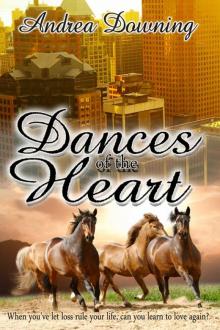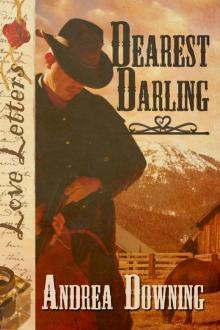- Home
- Andrea Downing
Loveland
Loveland Read online
Table of Contents
Loveland
Copyright
Praise for Andrea Downing
Dedication
Acknowledgements
Prologue
Chapter One
Chapter Two
Chapter Three
Chapter Four
Chapter Five
Chapter Six
Chapter Seven
Chapter Eight
Chapter Nine
Chapter Ten
Chapter Eleven
Chapter Twelve
Chapter Thirteen
Chapter Fourteen
Chapter Fifteen
Chapter Sixteen
Chapter Seventeen
Chapter Eighteen
Chapter Nineteen
Chapter Twenty
Chapter Twenty-One
Chapter Twenty-Two
Chapter Twenty-Three
Chapter Twenty-Four
Chapter Twenty-Five
Author’s Note
A word about the author...
Thank you for purchasing this publication of The Wild Rose Press, Inc.
Loveland
by
Andrea Downing
Copyright
This is a work of fiction. Names, characters, places, and incidents are either the product of the author’s imagination or are used fictitiously, and any resemblance to actual persons living or dead, business establishments, events, or locales, is entirely coincidental.
Loveland
COPYRIGHT © 2012 by Andrea Downing
All rights reserved. No part of this book may be used or reproduced in any manner whatsoever without written permission of the author or The Wild Rose Press, Inc. except in the case of brief quotations embodied in critical articles or reviews.
Contact Information: [email protected]
Cover Art by Debby Taylor
The Wild Rose Press, Inc.
PO Box 708
Adams Basin, NY 14410-0708
Visit us at www.thewildrosepress.com
Publishing History
First Cactus Rose Edition, 2012
Print ISBN 978-1-61217-323-8
Digital ISBN 978-1-61217-324-5
Published in the United States of America
Praise for Andrea Downing
“Downing has deftly created not only an adventurous story but she has painted characters who surprise and delight at every turn. A love story, yes, but also an authentic tale of the west in its glory days.”
~Velda Brotherton, author of Stone Heart’s Woman
Dedication
For Cristal, who believes anything is possible.
Acknowledgements
Several people have been particularly encouraging with their kind words. My thanks to Lindi Bilgorri, Sue Meek, Patricia Tober and Dee Thomas for their friendship.
I am grateful to Cindy Davis, my editor, for her patient support—and sense of humor. And to Charles Wachtel for his sage advice.
Finally, I am greatly indebted to my daughter, Cristal Downing, for giving up her vacation time to accompany me on a research trip to the Loveland/Greeley/Fort Collins area and for doing all the driving so I was able to take copious notes and enjoy the scenery. She was also kind enough to go with me to the Pawnee National Grasslands and to visit Cheyenne, WY, so I could stand on the site of the Cheyenne Club, and patient enough to put up with several days of my Country and Western music playing in the car and hotel room. Love you, darlin’.
March 2nd, 1881
The clamor started at ten o’clock when all the men were in their bunks. Piercing the chill night air and hanging in the wind like tattered shrouds on the trees, the screams of twelve-year-old Lady Alexandra Calthorpe were frenzied, wild and uncontrolled.
“Jesse!” Alex cried, hoping her best friend among the punchers might hear. “Jesse!”
“Alexandra, please, please,” begged her governess, Madame Helene. She tried to control her own emotions so as to comfort her charge while doing what must be done. “We must go. You’ve always known we must go!”
“Tom!” Alex screamed for the ranch foreman who had been almost a surrogate father. “Jesse!” she tried once more.
“Alex!” Her uncle’s voice was more harsh than he intended, but Oliver Calthorpe had little say in the demands of his brother Frederic, Duke of Faringdon—Lady Alex must now be returned to England.
“Cal!” Alex cried, hoping her other friend might be there. “Jesse!”
The two cowboys rose from their bunks and came out half-dressed, guns in their hands, to find Tom Yost, their foreman, standing by the office ready to stop them.
“What the hell,” said Jesse. “What’s going on?”
“She’s leaving,” answered Tom. “They’re taking Alex for the midnight train to New York. There’s nothing you can do.” His voice was flat and cold, but his heart was breaking. He thought back on the four years Lady Alex had spent at the ranch, the four years he had watched her grow and blossom from a shy young girl hardly able to talk with the punchers to someone who embraced life on the ranch, lived it to the fullest.
“What’re you talkin’ about? She didn’t even say good-bye. She can’t be leavin’,” said Cal, already feeling her loss.
“Calthorpe thought it would be far less painful for her to just go. If she knew in advance, she might have tried to run away.”
Jesse took a step to go past Tom but the older man held him back. “It’s best this way, Jess. She would have been hysterical for days if she’d had to say good-byes.”
“And she’s not now?” Anger heated Jesse as he shrugged off Tom’s hand. They stood some moments listening to the screams as more of the men came out. “Hell, Tom. How could you? How could Madame?”
“I discussed it with Madame. She was in tears too but felt there was no other choice.” Tom’s voice was so raw Jesse looked at him long and hard only to realize they all felt the same pain.
“Does Annie know?”
“No. I’ll have to tell her.”
“I can’t stand this.” Cal started to push past Tom. But the carriage was gone now and there on the steps to the great house was only the faithful maid, Rose, standing there sobbing, left to console.
Part One: 1886
Chapter One
When Jesse Makepeace got to the station on that April morning, the Express from New York had already arrived. The one passenger remaining on the platform was a young woman arguing with the porter.
“Oh, for heaven’s sake,” she said. “Please don’t throw those things about. That’s my easel, and it’s fairly fragile. Oh, look, please take care!”
She stood there helpless. Well-dressed in a pink wool suit with a hat and gloves, she reminded him of a little bird, fluttering as it learned to fly. He stood fascinated, her delicate beauty enthralling him. And then, hearing the English accent, he remembered why he was there.
“’Scuse me ma’am, would you be lookin’ for someone from the Faringdon?”
She turned to him, and a smile like the sun coming up on the best summer day spread across her face. “Hello, Jesse.” She got up on tiptoes and gave him a quick peck on the cheek.
His fingers went to his face where she had kissed him. She had her hands resting loosely on his arms and her eyes held his.
“Alex?”
She laughed and smiled. “Who did you think it was?”
“You’re all growed up!”
“Well, that’s what happens to little girls.” Her eyes were still locked with his. “Didn’t Oliver or Tom tell you to expect me?”
“No, I… Tom said there’d be two European ladies. He didn’t say anything else. It’s obvious he’s played a joke on me! Where’s Madame?”
“Oh, Jess,” she replied at last le
tting him go. “She died. She just…well, one evening she was fine and the next morning she was just gone.”
“You came out all alone? On the train?”
“Yes. Look,” she said, now taking control, “can we go? We’ve got two hours to catch up and I’m so anxious to get home and all. Can we just load up and go? We’ll talk on the way.”
“Look, Lady Alex—”
“It was Alex a minute ago. It’s still me, Jess.”
It was her—and yet it wasn’t. Half-woman, half-child—he was confused by the feelings he had, which he felt were almost obscene. She must be seventeen now, he figured; the five years back in England would have changed her, made her a lady instead of the wild young girl who had ridden in her brother’s castoff jodhpurs and her uncle’s rolled-up shirts, looking for all the world like some strange child outlaw. Yet he wasn’t reluctant to give in. “All right. Alex then. There won’t be room for all this. We’ll have to send someone back with a wagon for some of it.”
“It’s all right. We’ll take the easel and the paint box, please, and my rifles. The clothes can wait. If we can fit one bag—”
“These are light rifles.” He lifted one from its scabbard and hefted the weight of it in his hand.
“Purdys. They’re made to order, so they’re made for my strength.”
“Must cost a bit.” When she didn’t respond, he continued, “Been doin’ a bit of huntin’ then, have you?”
“They were a present from my brother David for the shooting season. I think I’ve used them maybe once, if you must know. But here, well, I thought they might be sensible to bring.”
He looked at her, stopped himself from commenting, and loaded the buggy as best he could.
They started out in silence still finding their footing with one another. Jesse was trying desperately to reconcile his bewildered feelings for the girl sitting next to him with the memories of the child who had left over five years ago. “So what happened to Madame Helene?” he asked at long last.
“Oh, goodness. It was awful. I mean, everything was fine, she was her usual self on the voyage over and everything. We had an appointment to meet with Jonathon Sturgis who is the dealer at New York Fine Arts.”
“So you’re painting now?”
“Yes, it seems to be the one possible way I have of making any money, short of becoming a governess myself, which I think I’d be rather unsuited for, don’t you?”
Jesse laughed. “Well, not the Alex I know maybe.” He looked across at her as he drove to see if she was all right with his comment. “What do you need money for, anyway, Alex? I thought—”
“You thought I would go from my father to my uncle to my brother to a husband, and everyone would be just fine and dandy, paying for me all my life. Is that it?” She sounded a bit piqued. “I thought you knew me better than that, Jesse.”
“I only meant—” He stopped. This was a new Alex and he didn’t want to get off on the wrong foot. “So what happened to Madame?”
“We had the meeting—which went well, by the way, thank for you asking,” she added acerbically.
“You didn’t give me a chance. You’re telling me ’bout Madame.”
“Yes. Sorry. Sorry,” she repeated. “Oh, poor dear Helene. I suppose I’m just wound up after the whole ordeal.” She rubbed her forehead and stole a look at him.
“Well, simmer down.” He waited a minute, then said, “Go on.”
“So after the meeting, we went on to celebrate at Delmonico’s, had a lovely dinner, got back to the hotel and went to bed. In the morning I awoke past the time Helene usually came in with my breakfast, so I went in to see what was happening…”
“She was dead?”
“Yes.” Alex bit a nail and passed a hand across her forehead. “Then, of course all hell broke loose. The manager called for the British Consul who came along—a pompous little man, absolutely the worst kind of petty administrator—and he in turn insisted I move straight into the Consulate to be “cared for” by his family. I mean, ‘cared for’ as if I were some sort of invalid or something. He wired Uncle Oliver as my father never answered because…because Helene was actually not supposed to be with me.”
“Why ever not? Were you supposed to be traveling on your own all the way from England?”
“Of course not. Don’t be ridiculous,” she snapped. “Oh, blast, I’m sorry Jess. It’s just—”
“For heaven’s sake, calm down. You’re here now and everything is gonna be all right.”
“Yes, you’re right. I suppose. Anyway, Oliver wired back to the Consulate and said I could come on, on my own.” She stopped for a moment, removed her gloves, bent down and pulled the pin from the back of her hat and took it off, then unbuttoned her shoes.
“What’re you doin’?” he asked, puzzled.
“What the hell does it look like I’m doing, Jesse?” She watched him try to hide a smile and look away. She had picked up curse words from David and her rebellious nature had held on to them as a way of being insubordinate to her father. It would no doubt be remarked upon by the punchers who had always been such gentlemen. But they would have to get used to it; she’d had enough of people telling her what to do and how to behave.
She glared at Jesse with impatience before continuing, “Poor Helene. Anyway, after the funeral I insisted on getting the very next train out, which happily was the Express. I had to go through all her things, which was incredibly depressing, and find the tickets and money.”
“So you’ve handled money at last,” Jesse tried to lighten things up a bit.
“Well, no, I didn’t in the end because meals in the dining car were included, for what they were worth, and I had this hundred dollar note which is all the cash Helene had. Apparently she was counting on our Letters of Introduction all over the bloody place or something. I don’t know. Maybe I just didn’t find the small cash. Anyway, they took me to the station and I haven’t been able to tip anyone which is why the porter was throwing my things about.”
“Heck, Alex, you shoulda said. I coulda given him somethin’. Them porters make most of their money from the tips.”
“Do they? Oh, well, sorry. How the hell would I know?” She looked at him, taking in the changes in him, how he had filled out, was somehow more manly yet lean with it, muscular. But it was still the same old Jesse, worn leather vest and checked shirt with snaps, straggling sun-bleached hair hanging out the back of his hat. “I see you have a new hat. It suits you. I like it.”
He took a breath to stop himself from commenting on her swearing, then said, “Well, you didn’t ’spect me to be wearin’ the same hat as five year ago, did you?”
“I didn’t expect anything. I thought maybe you had gone. You and Cal and the others. It could have been all changed at the Faringdon.”
“No. We’re still here, most of us. You mighta written.”
“Helene wrote Tom and Annie, didn’t she? If I had written, the letters would have been intercepted anyway.” She stopped and bit a nail. “You should be married by now. Are you married?”
He looked at her a moment, then turned back to the road. “There ya go, always trying to have me married off.”
“But you’re what, twenty-seven now? You should be married with a passel of kids runnin’ aroun’,” she mimicked.
“Well, I ain’t. Anyways, I thought it was you who’d be married. I sneaked a peek in Mr. Calthorpe’s London papers a while back—”
“The London newspapers?” she panicked.
“Yeah, ’course. You know we get the London papers for Mr. Calthorpe. Bit late of course but they do come.” He wondered for a moment about her reaction, then went on. “It was when you had that debutante party.”
“Oh,” she said with some relief.
“They said you were the Deb of the Season or somemat, and the most beautiful gal in London.”
“Oh, what nonsense is that? I tell you. Really!”
“Well, wasn’t the whole purpose of that coming out, that day-b
ew, to marry you off to some rich fella or somethin’?”
“Oh…oh, look, Jess.” She changed the subject. “I missed this so much. The mountains and the columbine on the prairie and the pines and the cattle and the men.”
“Well, we all missed you,” he said, his voice now gentle.
“Did you? I bet not. I think you’re just saying that to please me, aren’t you?”
“It were pretty bad when you left. That night. Cal and I were fit to be tied. We could hear ya screamin’ and all, but Tom said not to try anythin’. He had his gun out as well.”
“It doesn’t matter. Really it doesn’t. It’s all so long ago. Long, long ago.” She was quiet a moment then said, “Stop, please? We’ve got to stop for a moment. I want to drink it all in. Oh, goodness I’m so happy to be back,” and at long last she relaxed.
He pulled up the horses and for a time they sat there with Alex taking it in. She still could not get over the crispness, the freshness of the air and the way the sky seemed endless, completely surrounding her. She liked the wind on her face and the sigh of its breath through the distant piñons, its suspiration in the trees as if it, too, had seen something wonderful. And most of all she liked the space, like an unwritten page or an unfilled canvas, which had the promise of creation.
All at once she got down from the buggy before Jesse could get around to help her, and ran down the little hill and twirled around.
Jesse stood watching her for a moment, then said, “You haven’t changed, I don’t suppose.”
“Oh, no! Colorado is in my soul now. I can’t believe I’m back!” She walked a few paces more down the hill.
Suddenly his gun went off and she jumped and turned to look at him.
“Hell, Alex,” he said, forgetting himself. “You oughta know better’n to walk barefoot in the grass here. You coulda been bit.”
Then she spied the prairie rattler lying dead near her feet. She laughed, covering her mouth with her hand as if it were a great joke. “Oh, Jess. I think I belong to you now, don’t I?”
She started walking back toward him and he badly wanted to open his arms and embrace her, protect her as he had when she was small. Her wildness wasn’t gone, nor her joy and interest in everything around her; he could see that. Now her auburn hair was coming loose and it caught the sun so that streaks of gold glimmered round her face as the wind ruffled her skirts. He caught his breath and didn’t answer.

 City Boy, Country Heart: Contemporary Western Romance (Heart of the Boy Book 2)
City Boy, Country Heart: Contemporary Western Romance (Heart of the Boy Book 2) Bad Boy, Big Heart (Heart of the Boy Book 1)
Bad Boy, Big Heart (Heart of the Boy Book 1) Bad Boy, Big Heart (Heart of the Boy #1)
Bad Boy, Big Heart (Heart of the Boy #1) Dances of the Heart
Dances of the Heart Loveland
Loveland Dearest Darling
Dearest Darling City Boy, Country Heart_Contemporary Western Romance
City Boy, Country Heart_Contemporary Western Romance